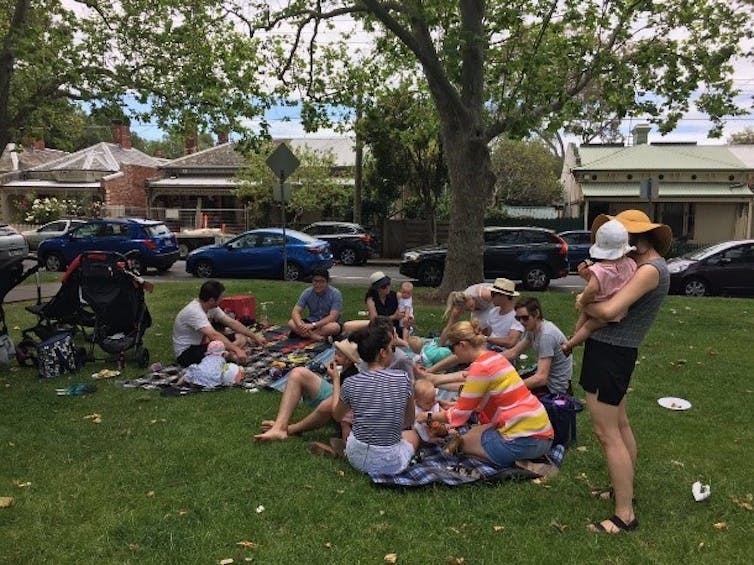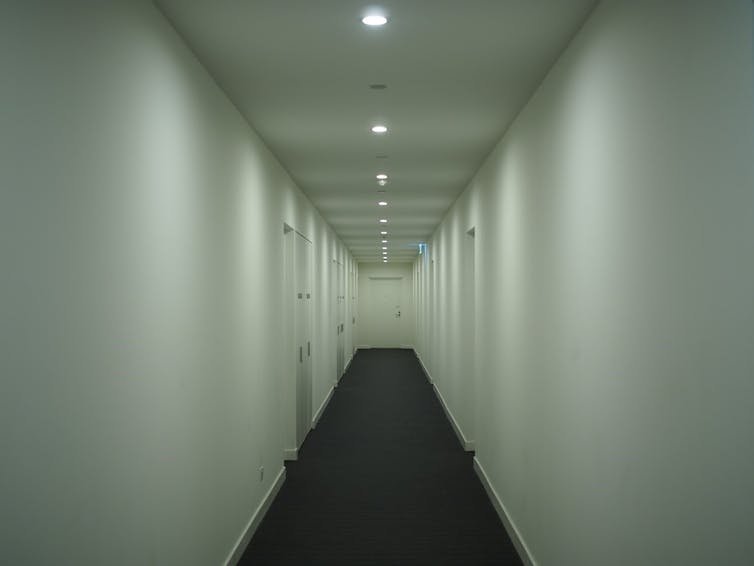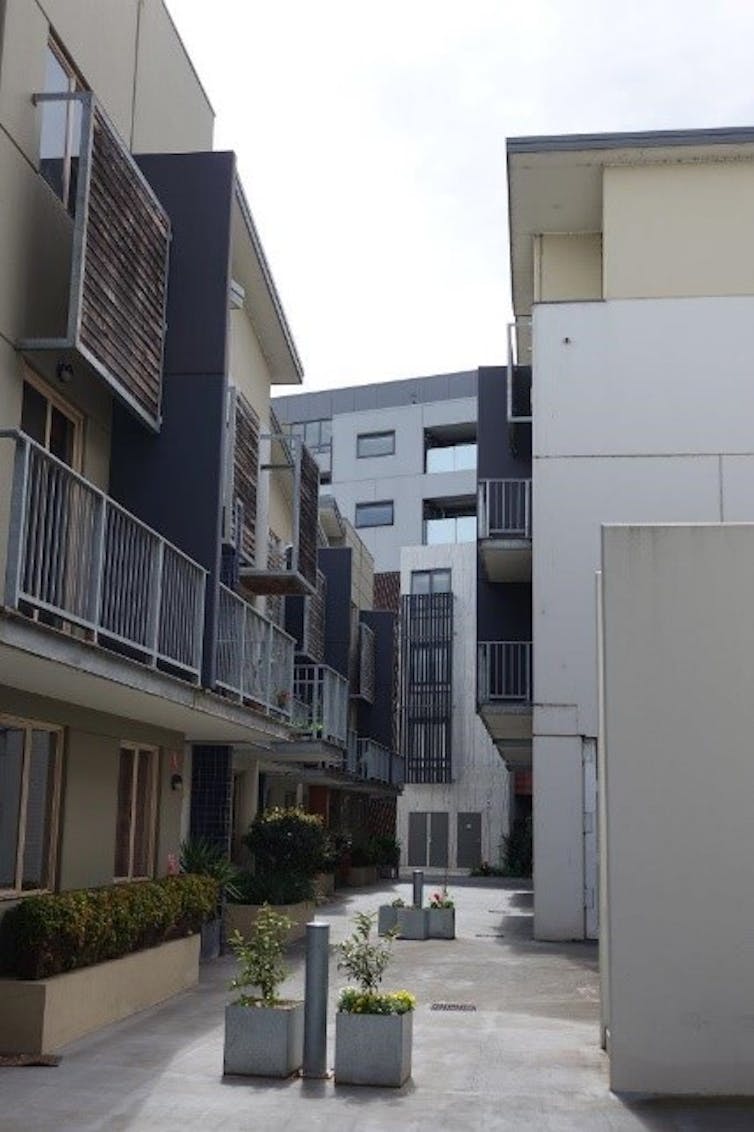Newer high-rise developments in Australia’s inner-city areas are increasingly home to parents raising young children. In the , family households represented nearly half of apartment residents. Close to one in ten children aged zero-four live in apartments in Australia.
, recently published in , explored parents’ experiences of raising preschool-aged children in newer, private high-rise apartments. The parents experienced a range of barriers to making social connections both within their developments and with the surrounding community.
This reflects the fact that most newer high-rise dwellings in Australia have been developed for residents without children. Several studies indicate that this leads to for families raising children in high-rise settings, including among older schoolchildren.
Apartment living through parents’ eyes
Our study used to explore parents’ experiences of raising children in apartments in the City of Yarra, Melbourne. Apartments represent ) in this inner-city municipality. Parents took 10 photographs of the positive and challenging aspects of apartment living.
We then used these images to guide both individual and group interviews. Parents recognised that the shared experiences of raising a young child in the City of Yarra fostered social connections, particularly at mothers’ groups and local parks. One parent explained:
"So this is my mothers’ group … It’s such a great community to have. I mean we’re kind of a close group now and we’ve just spent the last year growing our kids together … there was people from all different walks of life … and the only thing connecting us is just that we had a child in Yarra at the same time …"

But parents felt that space constraints in high-rise developments limited opportunities for play dates between children. The connections parents developed were also lost when other families planned to leave the community, or had already left, in search of larger homes and outdoor space.
The design of developments did not encourage incidental social interaction with neighbours either. One parent captured this in a photograph titled “Hallway of death”.

"It’s a nothing space, right? … You cannot stand and have a conversation there, you feel weird … cos you’re in the vortex of death … and if it was a nice space we might go out and he could crawl and that might make people stop and maybe we’d get to know the other people living on the floor …"
The closeness of apartments was also problematic. On one hand, parents wanted to connect with their neighbours. On the other hand, they were concerned about overstepping others’ boundaries, particularly when neighbours were often short-term renters without children. One parent’s photograph, “Close proximity but anonymous”, captured this.

"… despite being so close to each other there is a huge level of anonymity … It would be nice to not feel that we might be being disruptive or people are forming judgments about us based on what they see … And because it’s anonymous and there’s a lot of turnover you never really form relationships with people to know what they’re really thinking, so you second-guess it … Everyone wants some privacy and maybe when you’re right on top of each other you feel like you’ve got to guard your privacy, but my preference would be for it to be a little more connected than it is."
Families need social support
Parents of preschool-aged children often experience at the same as they feel an . Connections also need to be , due to the “place-anchoring” nature of young children and use of local services.
Not having strong social connections with other parents, whether within their own high-rise development and/or the local community, is therefore a problem. It could lead to feelings of loneliness and isolation. These could, in turn, contribute to and .
What could help?
Recent briefly acknowledge the importance of ensuring accessibility for families with young children. However, much more can be done to support families in inner-city high-rise developments. This includes fostering social connections.
Local governments can provide further social events in their communities, create infrastructure in parks and playgrounds to encourage families to gather for longer, and require developers to than currently apply.
Developers could also provide more favourable communal spaces inside dwellings for interaction to occur. Body corporate organisations could encourage longer-term leases that allow for the extended tenure needed for residents to form stronger connections.
Guidelines, including in regards to noise, could also be made more flexible to accommodate the increasing number of families with young children taking up residence.
The study was carried out with from the School of Health and Social Development, Deakin University.
Elyse Warner does not work for, consult, own shares in or receive funding from any company or organisation that would benefit from this article, and has disclosed no relevant affiliations beyond their academic appointment.

